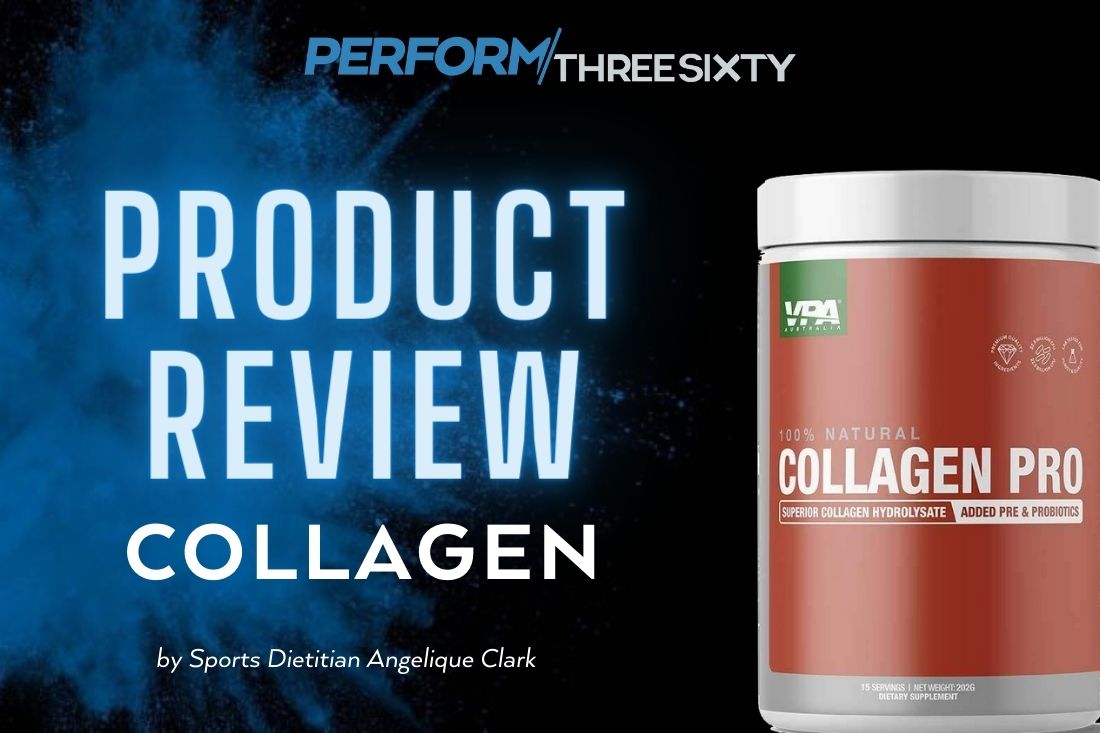What is collagen?
Collagen is the most abundant protein in the human body and is responsible for providing structure and strength to our connective tissues (tendons, ligaments, bones and cartilage) and well as structure to other body parts including bones, skin elasticity, blood vessels, eyes and teeth. It’s made up of 3 amino acids: glycine, proline and hydroxyproline. Protein-rich foods such as meat, eggs, fish and seafood, beans and dairy, bone broth and gelatin will provide the amino acids to help your body formulate collagen. Collagen supplements available on the market are generally hydrolysed beef collagen. Beef collagen powder is derived from the connective tissue of cattle. It is not a suitable product for vegans, and some vegetarians may also find it unsuitable. Beef collagen powder contains mostly Type II and Type III collagen which are found predominantly in the cartilage and cushions of the joints, and helps structure muscles, organs and arteries.
Why do we need it?
Unfortunately, collagen degrades with age, environment factors and poor diets. It can leave you with more wrinkles, stiffer tendons and ligaments, weaker muscles, joint pain and even gastrointestinal upset. Research supports a positive role in supplementing with a hydrolysed collagen alongside a healthy diet to help the body stimulate its own collagen production better and help to attenuate the effects of collagen deterioration over time.
Who would benefit?
In an athletic performance focus, when taken prior to impact exercise with vitamin C, supplementation can enhance collagen synthesis post-exercise and greater mending response as a result of the specific amino acid profile. This is beneficial in reducing any joint-related pain with impact exercise, improve recovery time by helping repair body tissues. For those that avoid gluten and dairy and those following not consuming a lot of animal products, collagen supplementation is particularly important if the diet cannot provide enough. Those returning from tendon or joint injury, those participating in high volume joint loading exercise (e.g. long-distance running) especially if you experience knee pain during or after exercise. Those over 30 years of age (especially if you are new to resistance training or impact exercise) and those simply wanting to maximise their joint health. Those looking to particularly improve their skin should investigate marine collagen for its smaller particles and dose.
Where do I get it?
Easily across the P360 counter! P360 stocks VPA Collagen PRO. Simply ask one of the Perform 360 staff to help you grab it from the shelf at the gym. Collagen PRO is a blend of hydrolysed collagen, pre- biotics and pro-biotics. This product is flavourless and can be added to almost any liquid you would like, including hot drinks like coffee. The collagen provides an amino rich source of dairy and gluten free protein. The pre- and pre-biotics help promote optimal digestive and gut health.
How do I use it?
Add 1 heaped scoop to or VPA’s Collagen PRO to 250ml of liquid (this provides 13-15g of collagen – the therapeutic dose for maximise joint care). Stir or shake for 20 seconds, or until completely dispersed. Collagen powder can be taken at any time every day but to have maximum impact on connective tissue health, collagen should be taken 20-60 minutes prior to training and with Vitamin C as this acts as a necessary cofactor in collagen biosynthesis. Adding 80ml of blackcurrant cordial (e.g. Ribena) or 1 effervescent Vitamin C tablet to the water with the collagen is ideal). Note: Ribena does contain carbohydrates so please factor this in as a pre-workout carbohydrate source. Collagen powder is generally safe, WADA approved and does not have medical side effects. As always, if you have any underlying medical conditions you may wish to check with a medical professional before taking a collagen supplement.
Author – Angelique Clark – Perform 360 Dietitian IG: @angeliqueclark_nutrition


